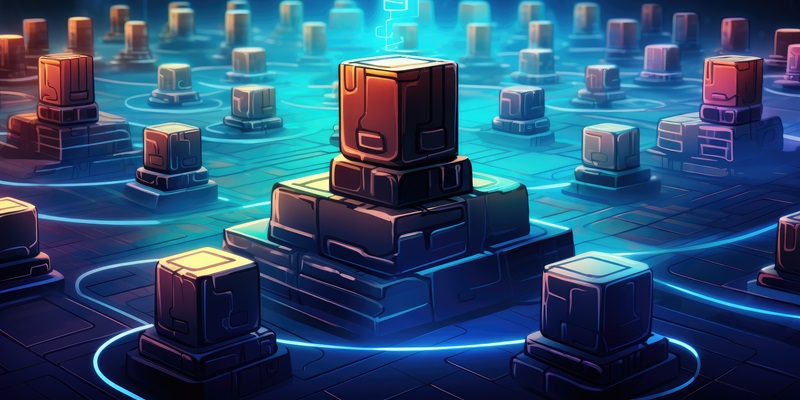In a groundbreaking collaboration, Creditcoin, Spacecoin, Sui, and Walrus have announced a strategic initiative empowering decentralized finance and connectivity to underserved regions. This alliance intends to integrate satellite networks, blockchain technology, and decentralized storage to offer financial opportunities in remote areas with limited traditional infrastructure.
Integrating Technology to Bridge the Gap
Combining Expertise for Financial Inclusion
The primary goal of this initiative is to address critical challenges in regions lacking reliable internet and financial services. By combining the unique expertise of each partner, the project aims to create a comprehensive solution that leverages the best in blockchain, satellite, and storage technologies. Creditcoin, a Layer 1 blockchain, establishes a secure financial foundation for lending and borrowing, helping individuals build verifiable credit histories. This is crucial for establishing trust and promoting financial inclusion in areas where traditional financial systems are absent or unreliable.
Spacecoin brings to the table its cutting-edge satellite technology, which delivers global internet access. This capability is essential in regions where internet connectivity is scarce or non-existent. By providing reliable internet access, Spacecoin ensures that individuals in remote areas can access the blockchain networks and financial services offered by Creditcoin. Meanwhile, Sui uses its smart contract capabilities to enable scalable and secure computing, which is fundamental for handling complex financial transactions and ensuring their validity.
Decentralized Storage for Efficient Data Handling
Walrus plays a critical role in the collaboration by managing decentralized storage. Efficient data handling and storage are essential for maintaining the integrity and accessibility of financial records. With decentralized storage, data is distributed across numerous nodes, reducing the risk of data loss and ensuring that personal and financial information remains secure. This aspect of the project is particularly important for communities facing frequent disruptions or lacking physical infrastructure for data storage.
The collaboration emphasizes peer-to-peer financial transactions without centralized intermediaries, aiming to lower costs, improve transparency, and foster economic participation. Transparency is further enhanced by the immutable nature of blockchain records, which ensures that all transactions are verifiable and tamper-proof. By providing both internet connectivity and financial tools, the initiative targets the nearly 37% of the global population lacking internet access. It offers them the means to engage in the digital economy and benefit from the modern financial system.
Addressing Global Inequality and Promoting Financial Inclusion
Practical Solutions for Underserved Communities
Aligning with global goals of reducing inequality, this partnership prioritizes practical outcomes for communities with the most significant need. By focusing on regions with limited access to traditional financial services, the initiative aims to create a more inclusive financial system. This includes enabling individuals to build credit histories, a key factor in accessing credit and other financial services. Creditcoin’s blockchain network records loan transactions on-chain, creating a transparent and trustless credit network, which is particularly beneficial for emerging markets.
The project’s emphasis on transparency and trust ensures that lenders have confidence in the transactions and the creditworthiness of borrowers. This can drive more economic activity in underserved areas, as individuals and businesses gain access to financing that was previously unattainable. Furthermore, the use of smart contracts by Sui ensures that transactions are executed reliably and securely, without the need for intermediaries.
Promoting Global Financial Inclusion
In a pioneering partnership, Creditcoin, Spacecoin, Sui, and Walrus have unveiled a strategic initiative designed to enhance decentralized finance and connectivity in underserved areas. This collaboration aims to merge satellite networks, blockchain technology, and decentralized storage solutions to create new financial and economic opportunities in remote regions that lack traditional infrastructure. By leveraging these advanced technologies, the alliance hopes to bridge the gap in access to financial services and digital connectivity, providing these often neglected areas with essential tools needed for development and financial inclusion. This initiative not only addresses the issue of limited infrastructure but also holds the potential to offer stable and secure financial systems, boost economic growth, and promote digital literacy in underserved parts of the world. Their vision is to empower local populations through these innovative technologies, paving the way for a more inclusive and connected global economy. This ambitious project underscores the importance of technological integration in solving real-world issues and promoting equitable growth.

